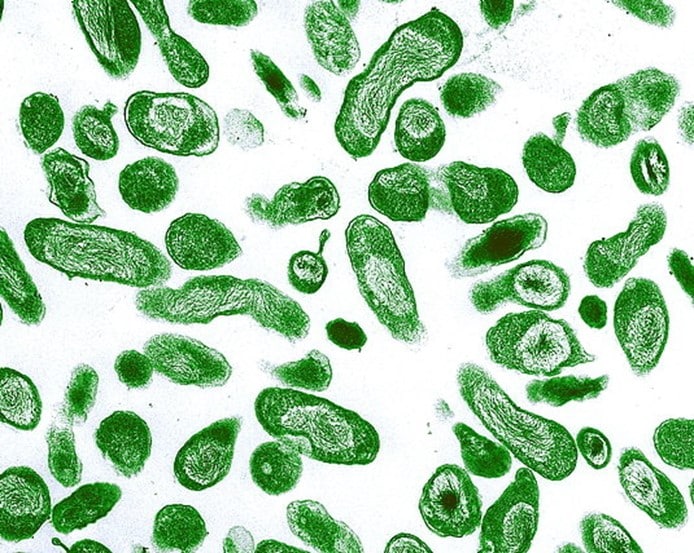
Q fever is an infection caused by a type of bacteria, which usually spreads to people from animals or their infected surroundings. Vaccination is advised for people at high risk, such as those who work with animals.
At Top Health Doctors, we have doctors that have received further training to perform assessment, testing, vaccination and treatment of Q fever.
We do a pre- testing counselling, detailed consent process, skin prick testing and also provide you with a pathology request form for Q Fever serology test in your first visit.
Only when both skin prick test and Q fever serology test confirmed that there was no prior exposure, we can proceed to Q fever vaccination in your second visit, usually 1 week later.
Please start the registration process with the Australian Q Fever Register by the Australian Meat Processor Corporation
NOTE: Please complete your “Australian Q Fever Register – Personal Details and Consent for Registration – QFR004” form online, before coming in for your first appointment.
After your assessment and vaccination are done, we shall provide you with a completed “Q Fever Pre-Screening & Vaccination Form QFR005”. Please kindly upload the completed QFR004 and QFR005 forms to the Australian Q Fever Register.
Your immune status will be shown on the Australian Q Fever register once the Q Fever register staff have verified the above completed forms.
We may provide you with a Q Fever Pre-Screening & Immunisation Report Card, in the interim.

Q fever is an infection. For most people, it’s a mild infection like the flu and can be treated easily.
But for a few people, it can lead to serious health issues such as lung infection (pneumonia) and inflammation of liver (hepatitis).
A few people develop chronic Q fever, which can resurface months or years later and can cause serious problems such as damage to the heart and other organs.
Q fever is caused by the bacteria Coxiella Burnetii, which is mostly found in farm animals such as cattle, sheep and goats. But it may also be found in other animals such as dogs, cats and kangaroos.
Animals with Q fever don’t usually look sick, but they can spread the bacteria to people.
Anyone who works with animals, such as meat workers, shearers, farmers and vets, has a higher-than-normal risk of getting infected. People usually get Q fever from breathing in infected air particles carrying dried up animal matter such as milk, urine, faeces (poo) and from the placenta.
Clothing, wool, hides and straw can also carry the bacteria. Infection rarely spreads from person to person. Drinking unpasteurised (unsterilised) milk may also be a risk – pasteurisation is a process that kills bacteria.
People who work with animals and animal products and waste are at risk of being infected with Q fever, especially new workers and visitors to animal-related industries.
Typical at-risk workers include:
We can do the relevant clinical assessment and blood test to confirm the diagnosis.
Only about half of the people with Q fever have symptoms. These usually start within 2 to 3 weeks of getting infected. The symptoms are like having the flu such as:
Long lasting fatigue can follow infection with Q fever. It can also cause serious problems for pregnant women.
Q fever is commonly treated with antibiotics and people with mild infections recover quickly. If you have chronic Q fever, you may need to take antibiotics for up to 18 months.
If you are at high risk of getting infected, and you are over 15 years, you can undergo assessment / testing and be given a Q fever vaccine to prevent infection. Do not drink unpasteurised milk, as this may cause infection.
If you’re concerned that you’re at risk or if you have Q fever symptoms, see us at Top Health Doctors.
Please note the consultation, assessment and vaccination related to pre-employment is NOT covered by Medicare.
If it is related to employment, it is usually tax deductible (please check with your accountant or your company).
Call us now to find out more, if you think you at risk of getting Q fever, for an assessment and Q fever vaccination.
Q Fever vaccinations are available at Top Health Doctors Underwood and Top Health Doctors Greenslopes
Learn more about: Q fever
Please see our Disclaimer in the FAQ page
About Top Health Doctors
Our Practices
Our Services
Top Health Doctors would like to acknowledge the traditional custodians of the land on which we live and work. We would also like to pay respect to the elders past and present and extend that respect to all other Aboriginal people.
The content created for this website is general information only, and this may not be applicable to you or your unique circumstances. Please consult your health professional to find out more.
© 2024 Top Health Doctors

Cannon Hill Clinic
Shop 1 K Mart Plaza Cannon Hill, 1909 Creek Road, Cannon Hill Qld 4170

Greenslopes Clinic
Shop 10 and 11, Greenslopes Mall, 700 Logan Rd, Greenslopes QLD 4120

West End Clinic
Suite 2, Healthcare Hub Floor 1, Montague Markets, 405 Montague Rd, West End Qld 4101

New Branch
Coming Soon
Contact Us
Follow Top Health Doctors
Expression of Interest